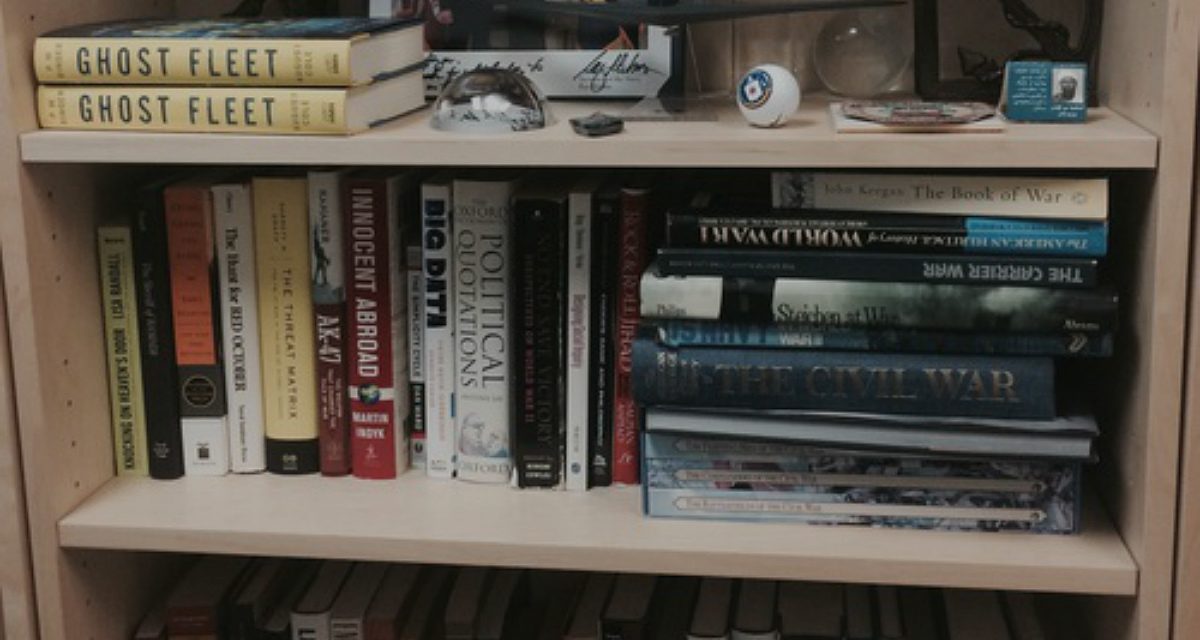Editor’s note: War Books is a weekly MWI series, in which we ask interesting guests—practitioners, experts, or experienced students of war—to list five books that have shaped the way they understand war, warfare, and strategy. This edition of War Books originally appeared in 2016.
Top Five (Fiction) Books
C.S. Forester, Beat to Quarters
The one that started the Horatio Hornblower series, which I love, especially how it follows his changes across the different levels of command, from midshipman to admiral, and yet the same anxieties bedevil him.
George R. R. Martin, Game of Thrones
Yes, it’s dragons, but it also captures well the internal dynamics of characters trying to figure out how to navigate the rapidly shifting loyalties of a civil conflict. And, even if you’ve seen the show, you will enjoy it.
Tom Clancy, Red Storm Rising.
Tom Clancy at his best.
Herman Wouk, Winds of War and War and Remembrance
World War II history is a passion of mine, but Wouk’s work is arguably a better telling of the world of World War II than any nonfiction book. It is magisterial and heartbreaking.
Steven Pressfield, Gates of Fire
Pressfield’s look at the Battle of Thermopylae and what it took to build soldiers who would prefer the “honor” of being doomed over survival.
The One That Shaped Me The Most
I first read Tom Clancy’s Red Storm Rising on a beach vacation when I was little. From submarine battles under the Barents Sea to tanks dueling along the Fulda gap to the appearance of a new “stealth” plane (two years before the Pentagon would acknowledge it was real), Clancy had all the elements to draw in a military-obsessed reader growing up the midst of the Cold War. Is it the most realistic telling of war or high literature along the lines of All Quiet on the Western Front? Certainly not. But did Clancy craft an addictive read that along the way explored some of the new technologies that would have shaped a war between the United States and the Red Army? Yes. And in so doing he built the epitome of a war techno-thriller and a major inspiration for Ghost Fleet, my book with August Cole. What is notable is that last summer I went back and re-read the book, and even though the Soviet Union no longer exists and the most advanced tech in it is now thirty years old, I still found myself staying up late to finish it.


